Dogs are cherished companions, but for allergy sufferers, finding the right breed can be a challenge. Many people are looking for small to medium sized dogs that don’t shed. While no dog is truly hypoallergenic, certain breeds produce less dander and are better suited for individuals with allergies. This guide explores some of the best options for those seeking a furry friend without the sniffles.
Understanding Hypoallergenic Dogs
It’s important to clarify what “hypoallergenic” means in the context of dogs. All dogs produce allergens, primarily through dander (dead skin cells), saliva, and urine. Hypoallergenic breeds, like the best small to medium sized dogs that dont shed, simply produce fewer of these allergens. This can significantly reduce allergic reactions in sensitive individuals, but it doesn’t eliminate them entirely.
Top Small to Medium Sized Dogs That Don’t Shed
Here are some popular choices in the small to medium size range that are known for their low-shedding coats:
1. Poodle (Miniature & Standard)
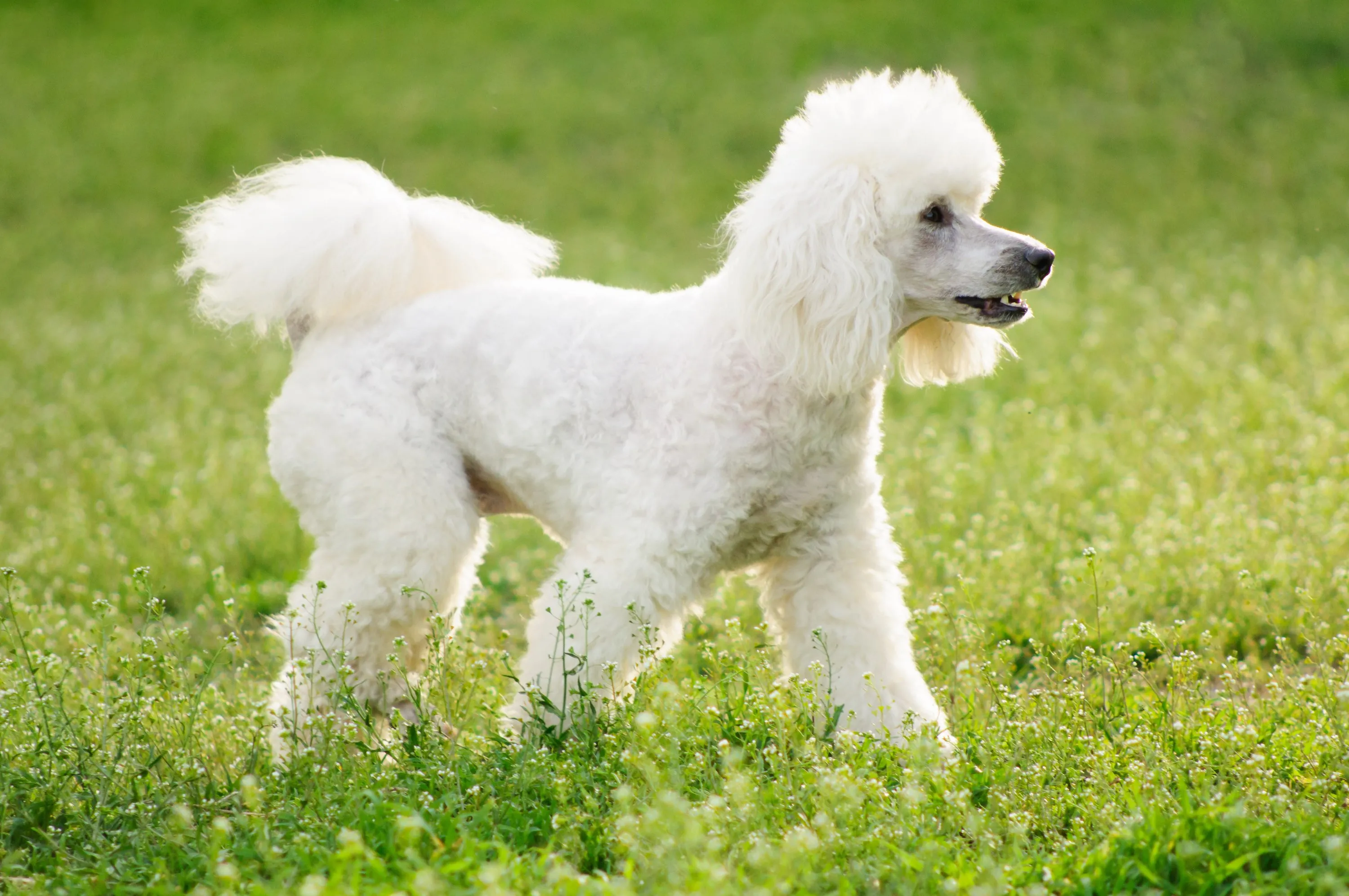 White poodle walking through grass
White poodle walking through grass
Poodles are renowned for their intelligence and hypoallergenic coats. Both Miniature and Standard Poodles have dense, curly hair that traps dander, minimizing shedding. Regular grooming is essential to prevent matting. They are considered one of the best small to medium sized dogs that dont shed.
2. Miniature Schnauzer
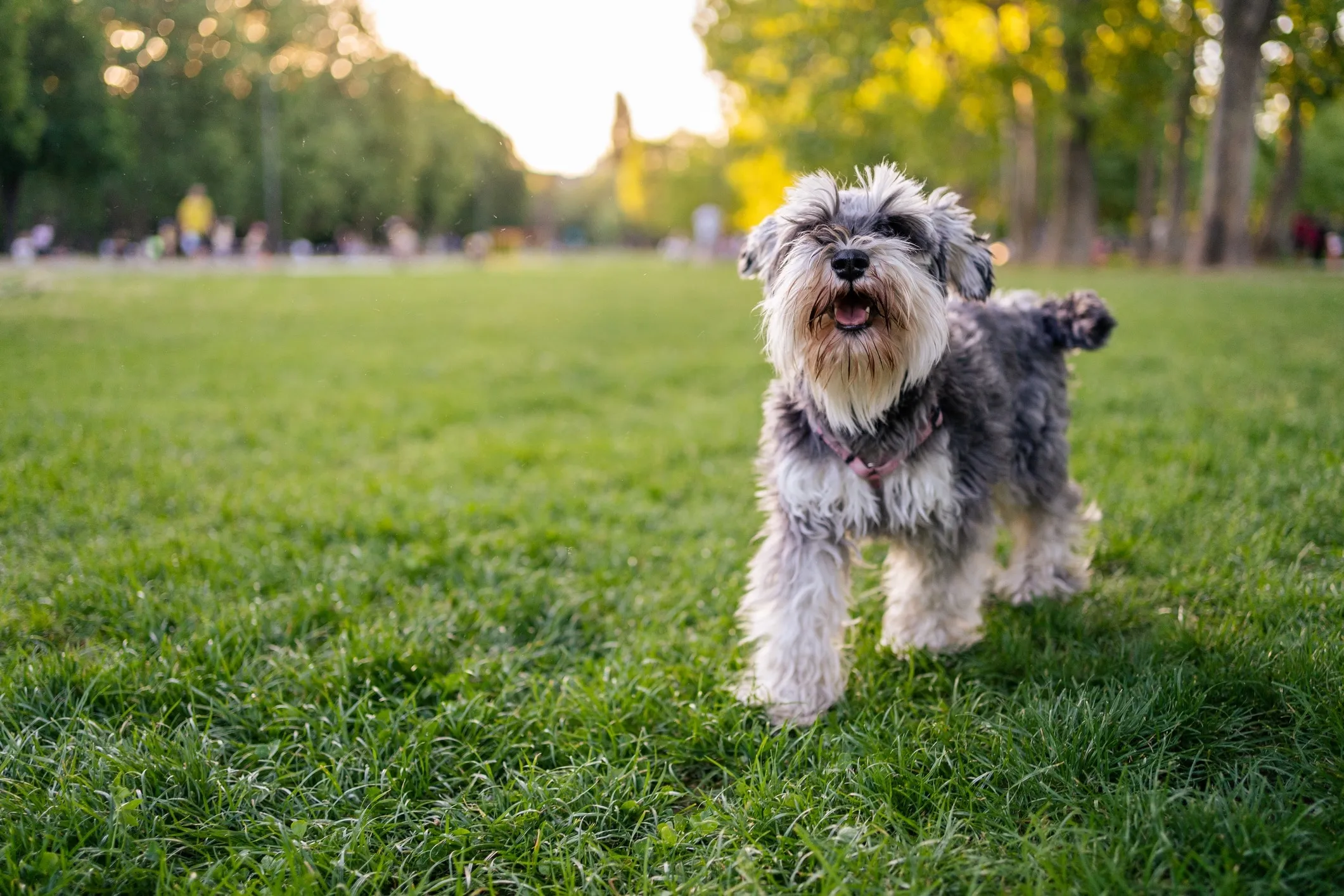 Salt and pepper miniature schnauzer wearing a pink harness in a park
Salt and pepper miniature schnauzer wearing a pink harness in a park
Miniature Schnauzers are sturdy, intelligent dogs with a wiry, double coat that sheds minimally. They require regular trimming and brushing to maintain their distinctive appearance.
3. Bichon Frise
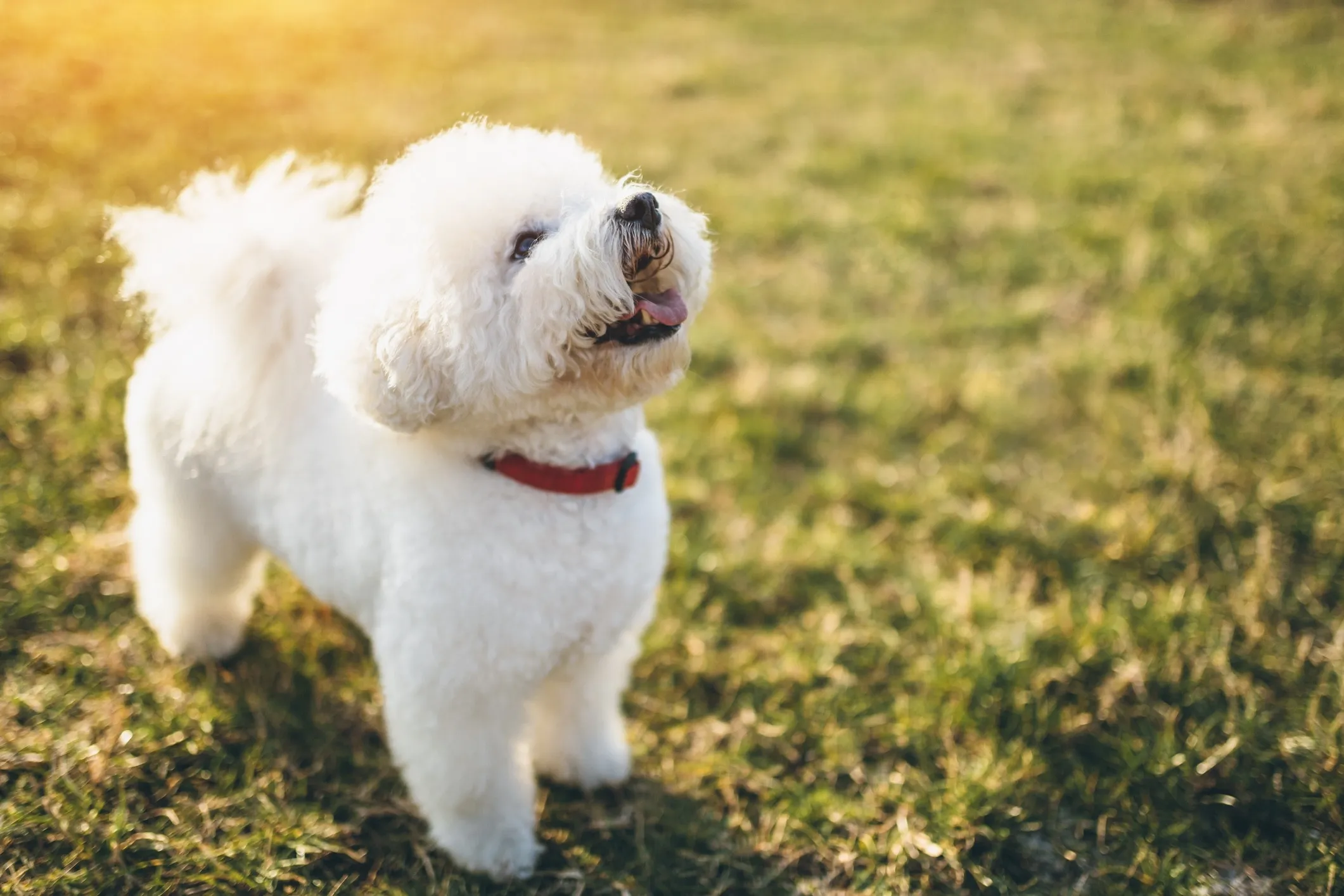 White bichon frise dog looking up in the grass
White bichon frise dog looking up in the grass
Bichons Frises are small, fluffy companions with a soft, curly coat that doesn’t shed much. Their white fur requires frequent grooming to prevent matting and staining.
4. Portuguese Water Dog
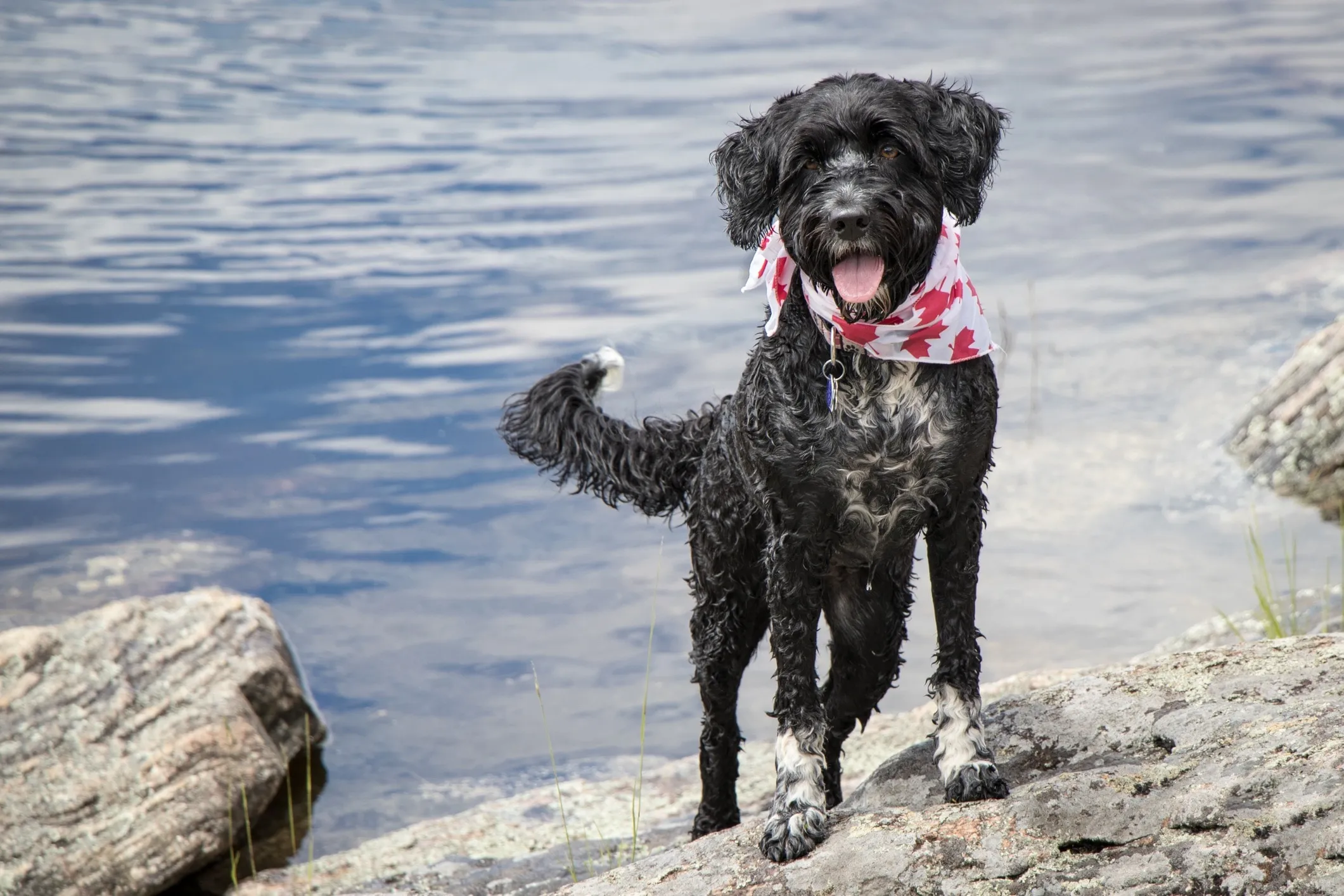 Black and white portuguese water dog wearing a red maple leaf bandana in front of water
Black and white portuguese water dog wearing a red maple leaf bandana in front of water
This medium-sized breed has a wavy or curly coat that sheds very little. They were originally bred to assist fishermen, hence their love for water and high energy levels. Regular exercise and grooming are crucial for their well-being. The Portuguese Water Dog is one of the smartest small companion dogs that don t shed.
5. Soft Coated Wheaten Terrier
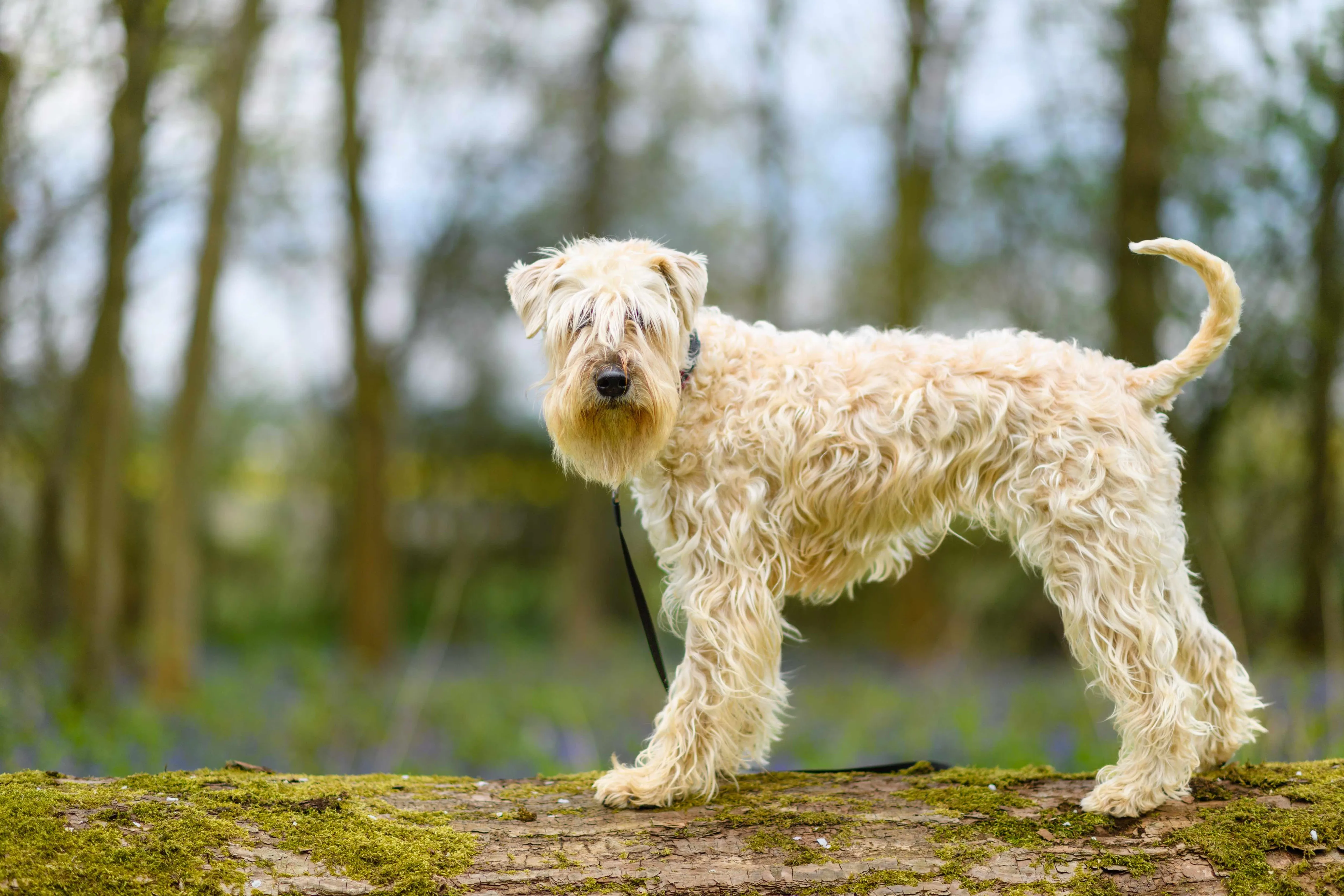 Soft coated wheaten terrier dog on a log
Soft coated wheaten terrier dog on a log
As their name suggests, these terriers have a soft, silky coat that sheds minimally. They are energetic and playful, requiring plenty of exercise and mental stimulation.
6. Lagotto Romagnolo
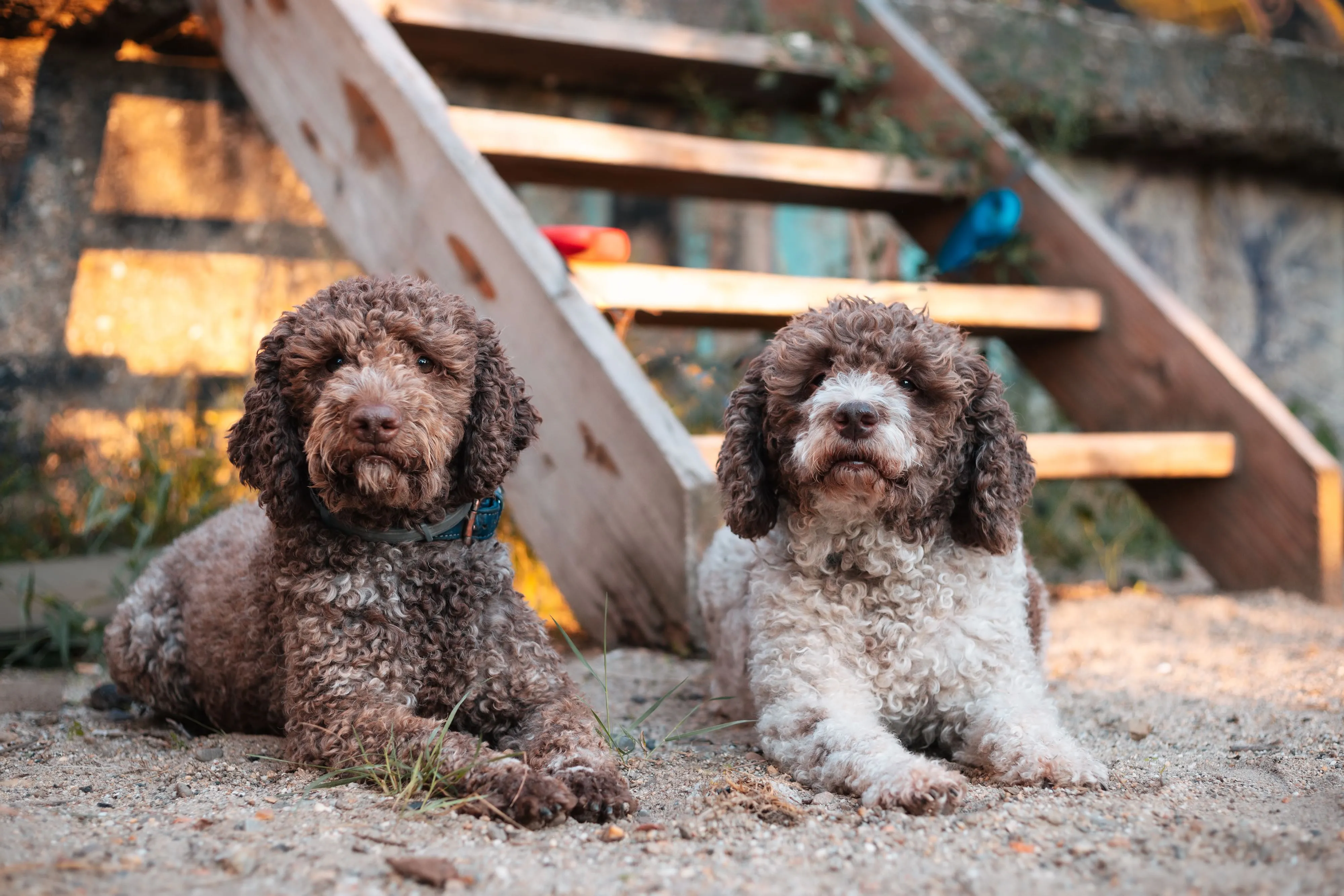 Two lagotto romagnolo dogs lying in dirt staring at the camera
Two lagotto romagnolo dogs lying in dirt staring at the camera
Originally bred as water retrievers, Lagotto Romagnolos have a curly, woolly coat that is relatively low-shedding. They are intelligent and eager to please, making them trainable companions.
7. Irish Water Spaniel
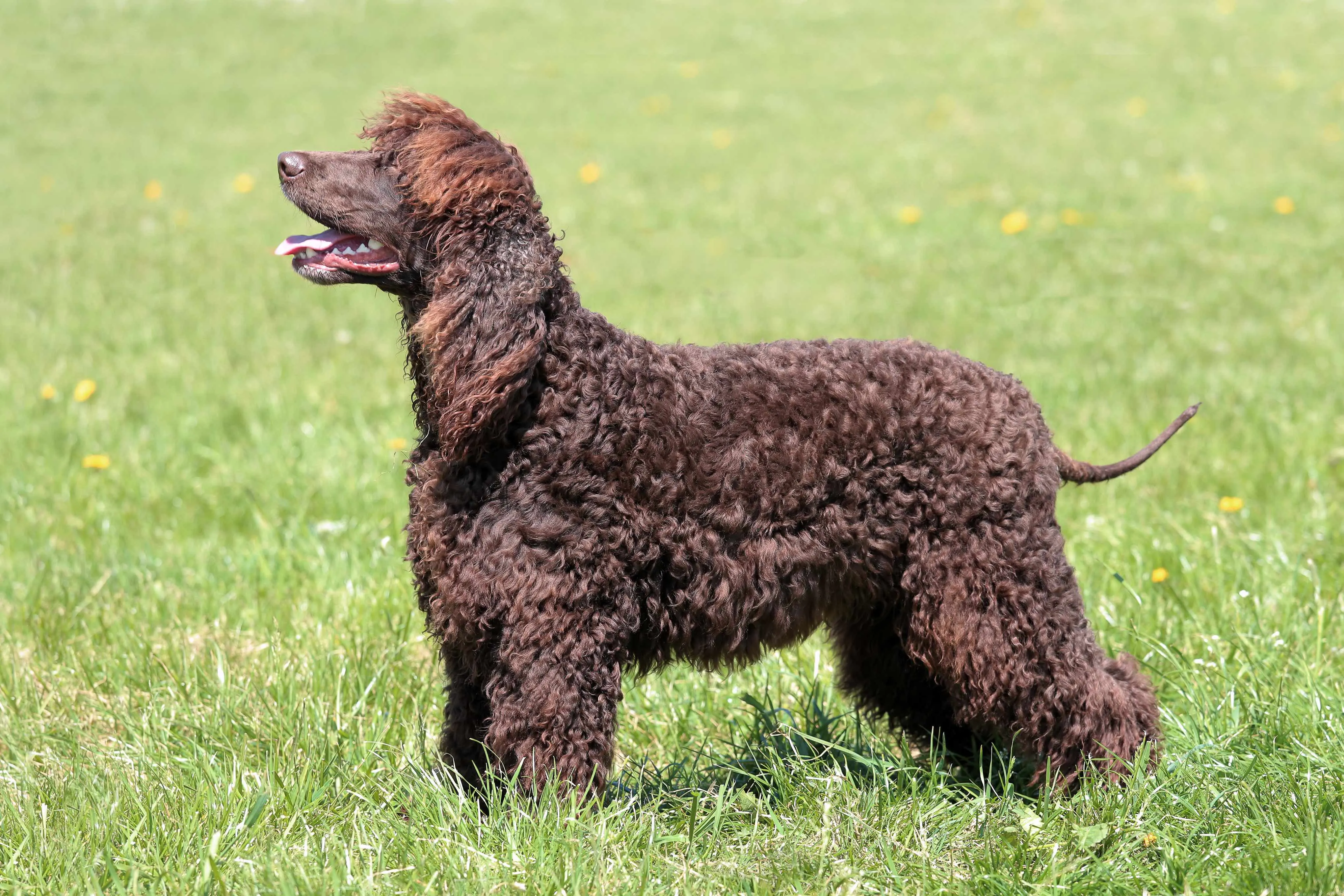 Brown irish water spaniel profile
Brown irish water spaniel profile
The Irish Water Spaniel is another excellent option for allergy sufferers looking for a smart and playful dog. They have a curly coat that requires regular grooming.
8. Shih Tzu
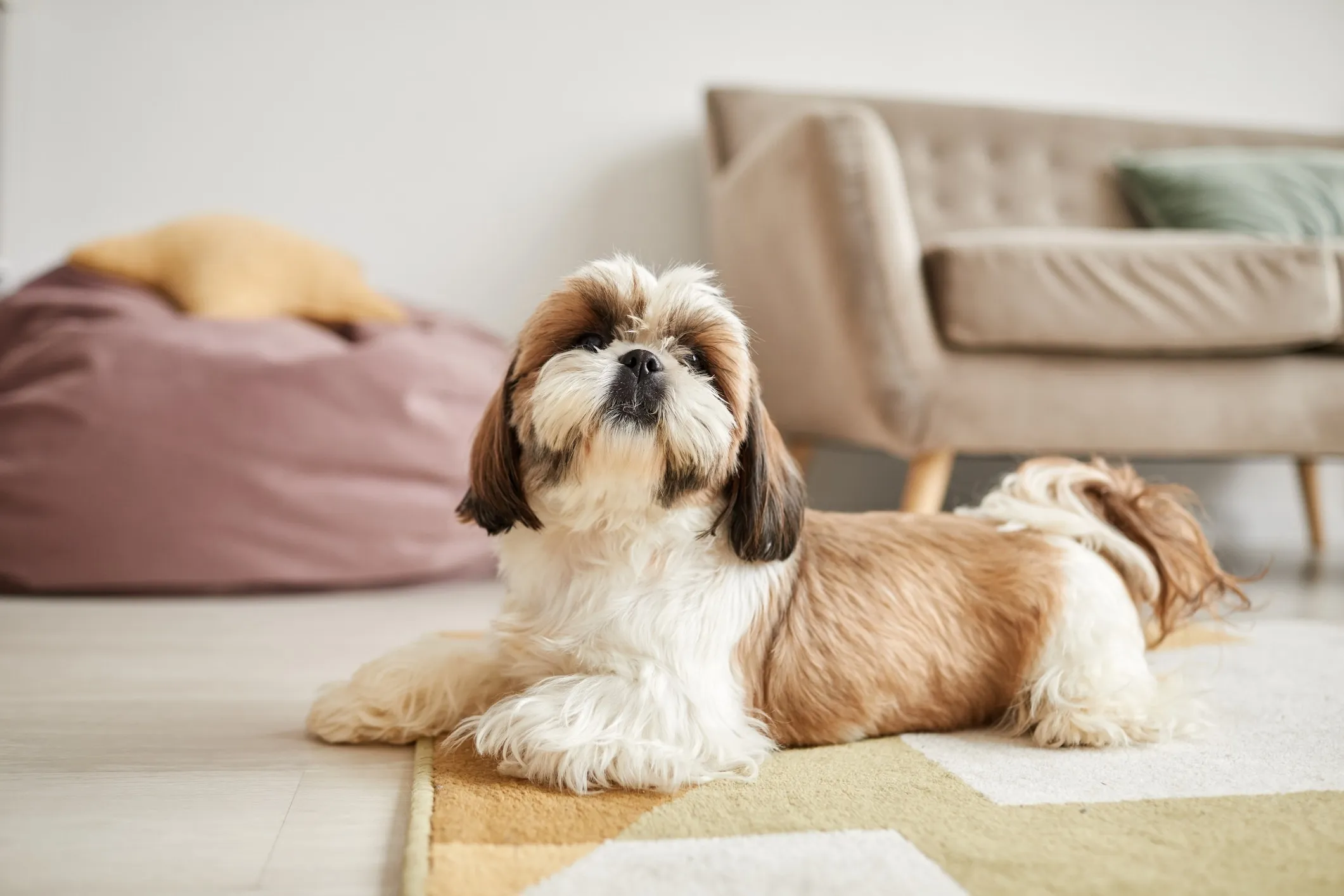 Brown and white shih tzu lying on a living room floor
Brown and white shih tzu lying on a living room floor
The Shih Tzu is a small dog with a long, flowing coat that sheds very little. Regular grooming is essential to prevent matting and tangles.
9. Maltese
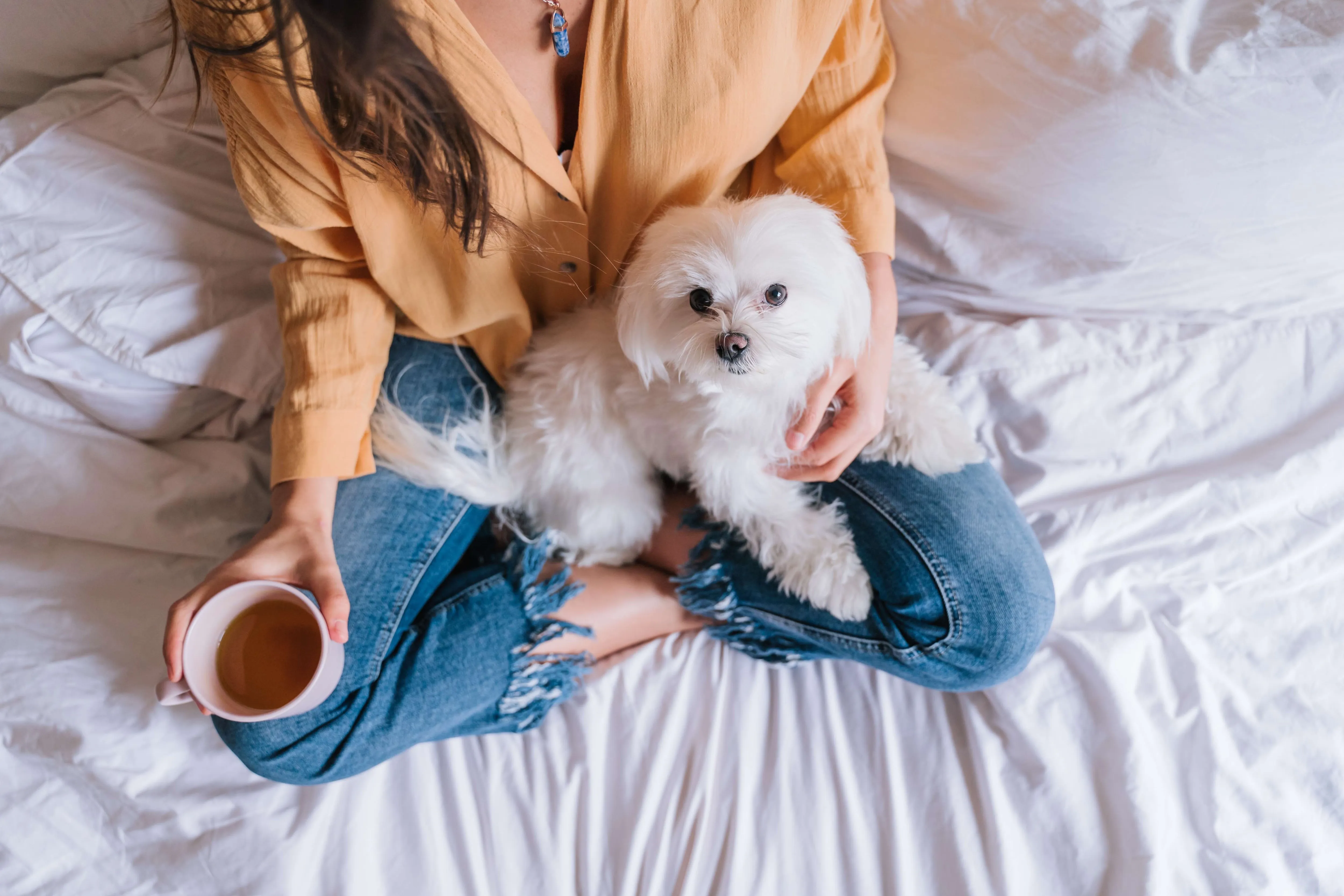 Woman holding a white maltese dog on a bed
Woman holding a white maltese dog on a bed
The Maltese is known for its beautiful white coat, making them one of the most beautiful best small dogs to own that don t shed. This breed sheds very little, but their coat requires regular grooming.
10. Bedlington Terrier
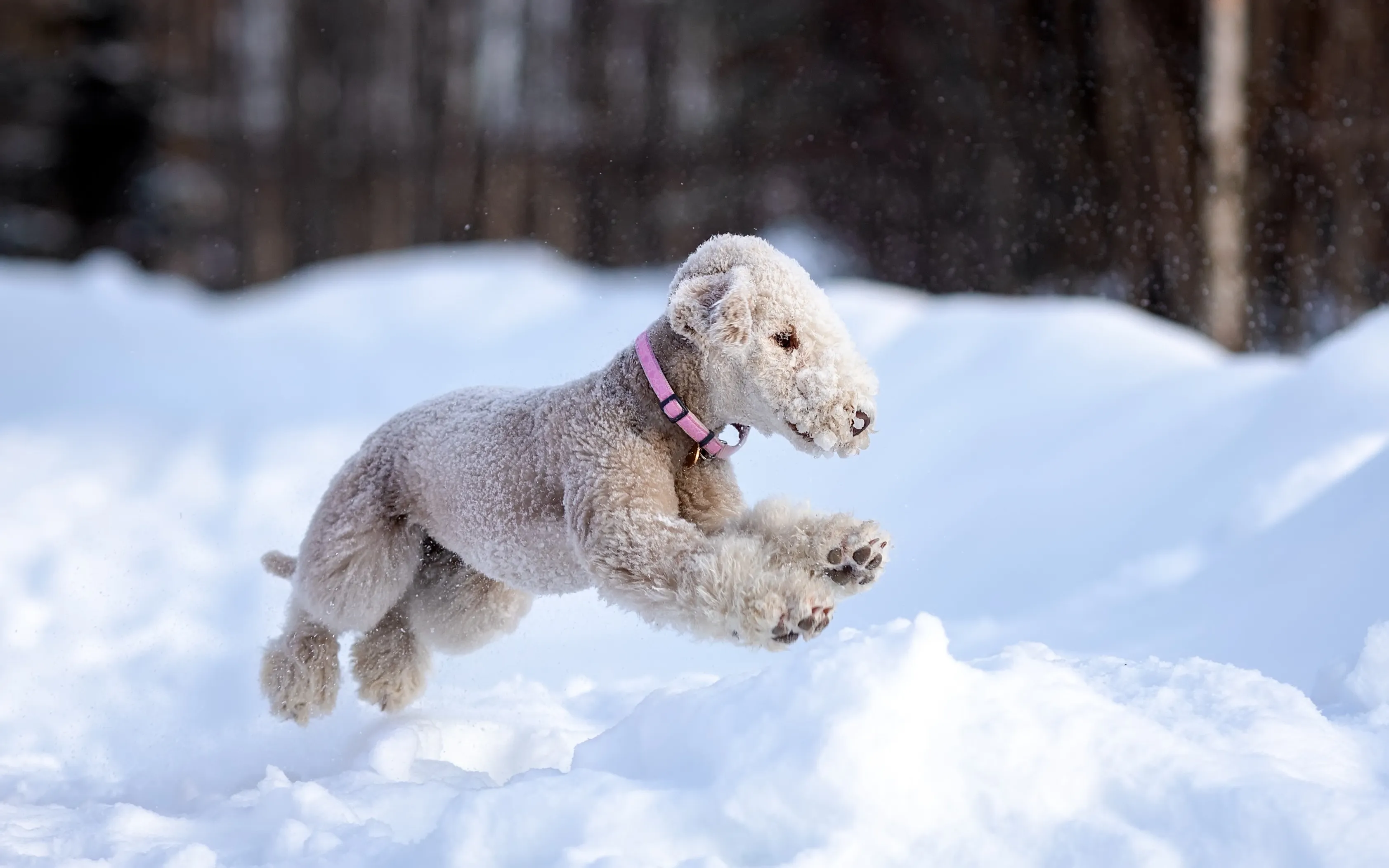 White bedlington terrier running through snow
White bedlington terrier running through snow
Often compared to lambs, Bedlington Terriers are unique and intelligent dogs that shed very little.
Crossbreeds
Several popular crossbreeds are also known for their low-shedding coats. These include:
- Labradoodle: Labrador Retriever x Poodle
- Goldendoodle: Golden Retriever x Poodle
- Aussiedoodle: Australian Shepherd x Poodle
- Schnoodle: Schnauzer x Poodle
- Whoodle: Soft Coated Wheaten Terrier x Poodle
- Bernedoodle: Bernese Mountain Dog x Poodle
- Shih-Poo: Shih Tzu x Poodle
Keep in mind that the shedding potential of crossbreeds can vary depending on the traits inherited from each parent.
Tips for Managing Allergies with Dogs
Even with a low-shedding breed, managing allergies is crucial. Here are some tips:
- Groom Regularly: Brush your dog frequently to remove loose hair and dander.
- Bathe Regularly: Bathe your dog every few weeks with a hypoallergenic shampoo.
- Clean Your Home: Vacuum and dust regularly to minimize allergens in your environment. Consider using an air purifier.
- Wash Bedding: Wash your bedding frequently, especially where your dog sleeps.
- Consult an Allergist: Talk to your doctor about allergy management strategies, such as medication or immunotherapy.
Conclusion
While no dog is entirely allergen-free, many small to medium sized dogs that don’t shed can be great companions for people with allergies. By choosing a suitable breed and implementing effective allergy management strategies, you can enjoy the joys of dog ownership without the constant discomfort of allergic reactions. Remember to spend time with a dog before bringing it home to see how you react to its dander.
